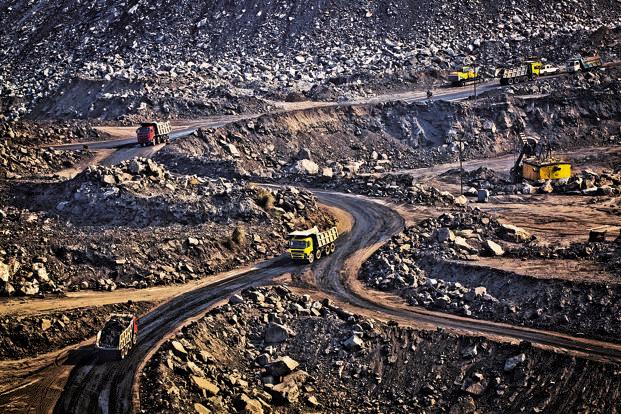The East Parej open coalmine in Ramgarh district, Jharkhand has left the landscape scarred and ravaged after nearly a decade of mining activities. The communities displaced by the mines and those on the borders of it, live out their days in a cloud of soot.
Community Correspondent Basanti Soren’s village, Lopongtandi is a kilometre away from these mines. As if that wasn’t enough to deal with, since the past few years a neighbouring housing colony for those working in the mines has added to the tensions of the tribal farming community. She reports today, with the hope that her video will be able to talk to authorities and bring some much needed relief.
There are around 2500-3000 people living in the Prem Nagar Housing Society adjoining Basanti’s village. They range from clerks and drivers to higher management working for the mine, all neatly categorised into the blocks that divide the colony up. The order comes at the cost of chaos for others. The sewers of the colony are directed on to the fields of Lopongtandi and throw out plastic, glass and other hazardous materials on to the fields. The glass mixes with the soil, hurting farmers and destroying crops; the plastic gets eaten by the cattle when they are let out to graze. Of the 230 people who depend on these farms, eight families have borne the brunt of the polluting drains.
“On the east is the coal mine and on the west, this colony. My people are the ones who pay the price for this ‘development’. In the past many people have filed complaints and made appeals to solve issues like dipping water tables, pollution, displacement and so on. There has hardly ever been a response to these… So no one has bothered with reporting this new problem. The farmers till now have quietly been cleaning up after the colony but each monsoon the drain floods bringing in torrents of garbage”, explains Basanti.
The Parej project was one 24 that was selected for funding from the World Bank to give mining a boost while ensuring that the worst affects of mining were mitigated. An Environmental and Social Mitigation Project was made cross conditional for the funding that included activities like rehabilitation for those displaced, treatment of effluents and community building for all villages.
If you find your way to the Central Coalfields Limited’s website and have a look at the grand plans laid out for the World Bank projects, you’d be impressed with the meticulous details in which these schemes have been laid out. But, we now know that the reality is a far cry. After complaints made on behalf of the people by the Chhotanagpur Adivasi Sewa Samiti, the Bank did constitute an inspection panel but never took on board the suggested policy changes. In effect, the Bank has a turned a blind eye to CCL’s violations.
I dredge up this history because it shows how much help mining companies have in flouting policies and regulations; that it is acceptable for them wreak havoc for the sake of development. Just because many of the affected communities cannot read or write, companies think it is OK to not listen to what they have to say.
Basanti joined IndiaUnheard to reverse precisely this mentality. For years she saw how people in her community didn’t raise their voices because of they feared being persecuted by the powerful. She wanted her people to know that they mattered just as much as the rich sahibs. This video was her second as an IU Correspondent. “It isn’t as simple as saying that someone is throwing their garbage in my house. This garbage, their plastic wrappers, their soap boxes, glass bottles and so on are denying my people the ability to grow grains that sustain them for at least 8 months. Are they going to feed us when we go hungry?” Basanti’s calm voice now betrays a simmering rage. She continues: “A large part of the problem is that we just don’t know our rights. The government wont tell us, the companies wont tell us. Of course not! They are scared that if we know, we’ll take them to task and ask them questions. So the policy papers must remain just those and must be filed away neatly, never to be opened.”
The ‘file’ has now been opened. With the video ready, Basanti is now going to take on the administration at the Central Coalfields limited and make sure that they take some action. She has already lined up meetings with the Project Officer; even the General Manager will see this video.
And you have to make sure that these voices get heard. Why? Because you’re probably sitting in an air-conditioned room, reading this on a computer or some new fangled piece of technology. And chances are they are all powered by coal from a mine, just like the one ruining the lives of people in Lopongtandi.
Call to Action: Please call Mr Naik, the East Parej Project Officer on 08987784309 and ask him to ensure that garbage disposal on the lands of the tribal farmers stops immediately
Republished with the permission of the author. This was published originally in www.videovolunteers.org






